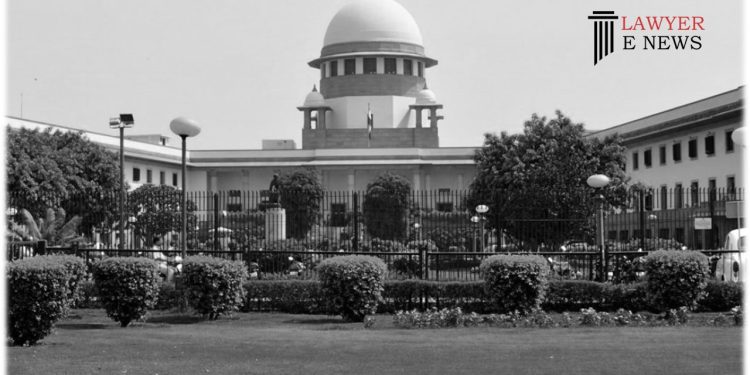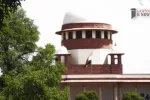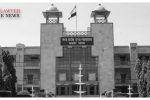Sect. 302 IPC – Minor Discrepancies in Statement of Witness Not Affected Overall Findings of Court – SC

On dated 15 Feb 2023, Supreme Court while deciding an appeal in murder case (AJAI ALIAS AJJU & ORS. Vs. STATE OF UP D.D. 15FEB2023) stated that non-examination of certain witnesses or evidence did not have any material bearing on the case, and the minor discrepancies pointed out by the defense did not affect the overall findings of the lower courts.
In 2007, Braj Pal Singh filed a complaint with the police stating that his brother’s family had been brutally attacked, resulting in the deaths of his brother Vijay Pal Singh, his wife, his son, and son-in-law, while his daughter Pinky was injured. The investigating officer recorded statements from the two surviving daughters, Pinky and Rashmi, who provided a detailed account of the events leading up to the attack. They mentioned that there was enmity between their father and uncle, as well as with a neighbor, Mukesh. Pinky stated that the assailants, including Mukesh, Braj Pal Singh, Ravi, and Ajai, used talwar and gandasa to attack her family members while mentioning the name of Abrar and Pramod, and that they left after assuming Pinky was dead. She also mentioned that she and her sister were under threat and requested that their statement be kept confidential. The investigating officer completed necessary formalities, including post-mortem and site plan preparations, and made necessary recoveries.
The investigating officer recorded statements from Nishant’s daughters, Pinky and Rashmi. Later, Mukesh and Braj Pal Singh were arrested and gave confessional statements, leading to the recovery of blood-stained clothing and weapons. Co-accused Ravi and Ajai alias Ajju were also arrested and gave confessional statements, leading to the recovery of additional evidence. The recovered items were sent for forensic examination. A charge sheet was filed against all four accused, and the trial was held with 13 witnesses and all relevant material and documents being proved and exhibited. The accused denied their involvement and alleged that they were falsely implicated. The defense examined two witnesses, including DW-1 Dr Islamuddin, a resident doctor in Sarvoday Hospital, and DW-2 Smt Berwati, the mother of accused Ajai alias Ajju.
Finding of Trial Court and High Court
In 2009, the Trial Court convicted four individuals of the murder of four close relatives and attempted murder of another. They were convicted under section 302/149 and section 307 of IPC and other allied offences under IPC and Arms Act, 1959 and were awarded death sentences and life imprisonment, as well as other lesser sentences for different offenses proved. The accused appealed to the High Court, which affirmed their conviction but commuted the death sentences to life imprisonment after considering the respective arguments and relevant factors. Aggrieved Accused approached Supreme Court.
Arguments
Accused contended that the sole eyewitness, Smt Pinky (PW-1), was related to the deceased and had enmity with the appellants, making her an unreliable witness. There is no corroborating evidence to support the testimony of the sole eye-witness. Pinky did not disclose the names of the assailants at the time of the incident, which suggests her testimony is unreliable and has been improved. The fact that a dog squad was summoned indicates that the assailants were unknown, and Pinky did not actually see them or recognize them.
The defense argued that certain witnesses who were present at the scene were not examined, raising doubts about the prosecution’s case. The defense argued that Pinky’s statement was not recorded before a magistrate under Section 164 of the CrPC, creating further doubts. One of the appellants, Ravi, argued that Pinky did not mention his name during her initial statement to the investigating officer and that it was brought up for the first time during the trial as an improvement.
State counsel argued that the findings of both the Trial Court and the High Court were based on a thorough scrutiny and appreciation of the evidence on record and do not require any interference. The appellants, who were close relatives and neighbors of the deceased, committed the murder and attempted murder for property gain. The State argued that no leniency should be shown to the appellants, and the High Court committed an error by commuting the death sentence to life imprisonment. Therefore, the State sought the restoration of the Trial Court’s death sentence.
Supreme Court Observations and Held
Supreme Court observed that the testimony of the injured witness (PW-1) was reliable and fully supported the prosecution’s case. The two daughters of the deceased did not speak out initially, but later disclosed the true sequence of events to the investigating officer. The non-examination of other witnesses and the statement under section 164 CrPC did not affect the testimony of PW-1 and the other material evidence.
Supreme Court found that the testimony of the injured witness (PW-1) was fully reliable and there was no reason for her to falsely implicate the accused. The two daughters of the deceased who had witnessed the crime also gave truthful testimony, and their initial silence was understandable as they were protecting their lives.
Further Observed that non-examination of certain witnesses or evidence did not have any material bearing on the case, and the minor discrepancies pointed out by the defense did not affect the overall findings of the lower courts.
Supreme Court dismissed the appeals and upheld their conviction.
AJAI ALIAS AJJU & ORS.
Vs.
STATE OF UP






